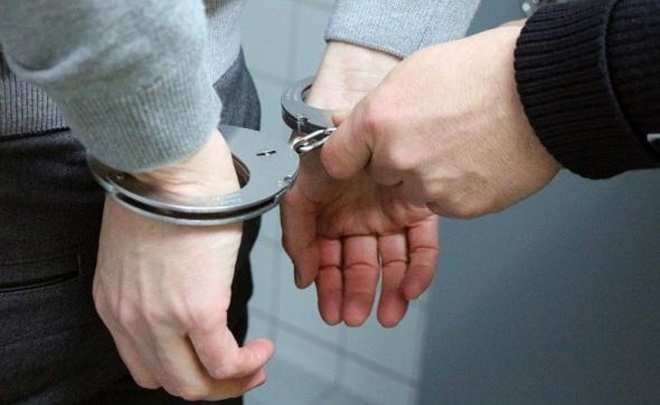Cases of refusal of extradition to foreign countries in Vietnam
What are the cases of refusal of extradition to foreign countries in Vietnam? - Ngoc Nhien (Tay Ninh)

Cases of refusal of extradition to foreign countries in Vietnam (Internet image)
Regarding this issue, LawNet would like to answer as follows:
1. Cases of refusal of extradition to foreign countries in Vietnam
According to Clause 1, Article 35 of the Law on Legal Assistance 2007, competent proceedings-conducting bodies of Vietnam may refuse extradition if the extradition requests fall into one of the following cases:
- The persons requested for extradition are Vietnamese citizens;
- Under Vietnamese law, the persons requested for extradition cannot be examined for penal liability or serve their penalties due to expired statute of limitations or other lawful reasons;
- The persons requested for extradition for penal liability examination have already been condemned by Vietnamese courts with legally effective judgments for the criminal acts stated in the extradition requests or the cases have been suspended under Vietnams criminal procedure law;
- The persons requested for extradition are those who are residing in Vietnam for reasons of possible coercion in the extradition-requesting country due to discrimination of race, religion, gender, nationality, ethnicity, social class or political viewpoint;
- The extradition requests are related to different crimes and each crime can be examined for penal liability under the law of the extradition-requesting country, but fail to comply with Clause 1, Article 33 of the Law on Legal Assistance 2007.
2. Cases of extradition in Vietnam
Cases of extradition under Article 33 of the Law on Legal Assistance 2007 are as follows:
- Persons who may be extradited under the provisions of the Law on Legal Assistance 2007 are those who commit criminal acts for which the Penal Code of Vietnam or the criminal law of the requesting country prescribes penalties of one or more years in prison, life imprisonment or death penalty or who have been sentenced to imprisonment by a court of the requesting country and the remaining imprisonment duration is at least six months.
- Criminal acts of the persons defined in Clause 1 of Article 33 of the Law on Legal Assistance 2007 must not necessarily be in the same category of crimes or the same crime, and the factors that constitute their offenses must not necessarily be the same under the laws of Vietnam and the requesting countries.
- If criminal acts of the persons defined in Clause 1 of Article 33 of the Law on Legal Assistance 2007 took place outside the territory of the requesting countries, the extradition of offenders may be effected if those acts are criminal acts prescribed in Vietnams Penal Code.
3. Regulations on extradition decisions in Vietnam
Regulations on extradition decisions under Article 40 of the Law on Legal Assistance 2007 are as follows:
- Within ten working days after the receipt of extradition request dossiers transferred by the Ministry of Public Security, the provincial-level Peoples Courts of the localities where the persons requested for extradition are residing, being detained or held in custody or serving their imprisonment sentences shall handle them and notify the Peoples Procuracies of the same level thereof in writing.
While preparing to consider the extradition requests, the concerned provincial-level Peoples Courts may request competent bodies of foreign countries to clarify unclear points in the extradition request dossiers. Written extradition requests and written replies shall be sent via the Ministry of Public Security.
- Within four months after handling the requests, provincial-level Peoples Courts shall, on a case-by-case basis, issue one of the following decisions:
= Decision to consider the extradition request when the conditions prescribed by the Law on Legal Assistance 2007 are fully met;
= Decision to suspend the consideration of the extradition request and return the dossier to the Ministry of Public Security in case the request does not fall under their jurisdiction, the foreign country withdraws the extradition request or the person requested for extradition has left Vietnam or for other reasons the consideration cannot proceed.
- Provincial-level Peoples Courts shall consider an extradition request within thirty days after issuing the decision defined at Point a, Clause 2 of Article 40 of the Law on Legal Assistance 2007 and immediately transfer a dossier set to the Peoples Procuracies of the same level.
- The extradition request shall be considered at sessions of a council consisting of three judges, including a presiding judge, with the participation of members of the Peoples Procuracy of the same level.
The extradition request-considering council works in the following order:
= A council member presents the contents of the dossier of the extradition-requesting country and states his/her opinions on the legal grounds of the extradition;
= The procurator states the Peoples Procuracys viewpoints on the extradition;
= The lawyer or lawful representative of the person requested for extradition presents his/her opinions, if any;
= The person requested for extradition states his/her opinions;
= Based on the provisions of the Law on Legal Assistance 2007, relevant provisions of other Vietnamese laws and treaties to which Vietnam is a contracting party, the council discusses and decide by majority on the extradition or extradition refusal.
- Within five working days after the issue of decisions on extradition or extradition refusal, the provincial-level Peoples Courts shall send the decisions to the persons requested for extradition, the Peoples Procuracies of the same level and the Ministry of Public Security for the exercise of rights and performance of obligations according to law.
Persons requested for extradition may appeal and the Peoples Procuracies of the same level may protest within fifteen days, the Supreme Peoples Procuracy may protest within thirty days as from the date the provincial-level Peoples Courts issue decisions.
The provincial-level Peoples Courts shall forward the dossiers, appeals and protests to the Supreme Peoples Court within seven days from the date the appeal or protest time limit expires.
Within twenty days after receiving the extradition dossiers and appeals or protests, the Supreme Peoples Court shall open court sessions to consider the appealed or protested decisions of the provincial-level Peoples Courts; the appellate council shall decide on the extradition or extradition refusal.
The order for examination of appeals or protests against extradition decisions of provincial-level Peoples Courts complies with Clause 4 of Article 40 of the Law on Legal Assistance 2007.
- Legally effective extradition decisions include:
= Decisions of first-instance courts, which are not appealed or protested against;
= Decisions of the courts of appeal.
- Key word:
- extradition
- Cases of land rent exemption and reduction under the latest regulations in Vietnam
- Economic infrastructure and social infrastructure system in Thu Duc City, Ho Chi Minh City
- Regulations on ordination with foreign elements in religious organizations in Vietnam
- Increase land compensation prices in Vietnam from January 1, 2026
- Determination of land compensation levels for damage during land requisition process in Vietnam
- Who is permitted to purchase social housing according to latest regulations in Vietnam?
-
.png)
- Application of the Criminal Code in case the offender ...
- 15:05, 10/05/2022
-

- Notable new policies of Vietnam effective as of ...
- 16:26, 11/04/2025
-
.Medium.png)
- Notable documents of Vietnam in the previous week ...
- 16:21, 11/04/2025
-
.Medium.png)
- Notable documents of Vietnam in the previous week ...
- 16:11, 02/04/2025
-
.Medium.png)
- Notable new policies of Vietnam to be effective ...
- 16:04, 02/04/2025
-
.Medium.png)
- Notable new policies of Vietnam effective from ...
- 14:51, 21/03/2025

 Article table of contents
Article table of contents
